[ad_1]
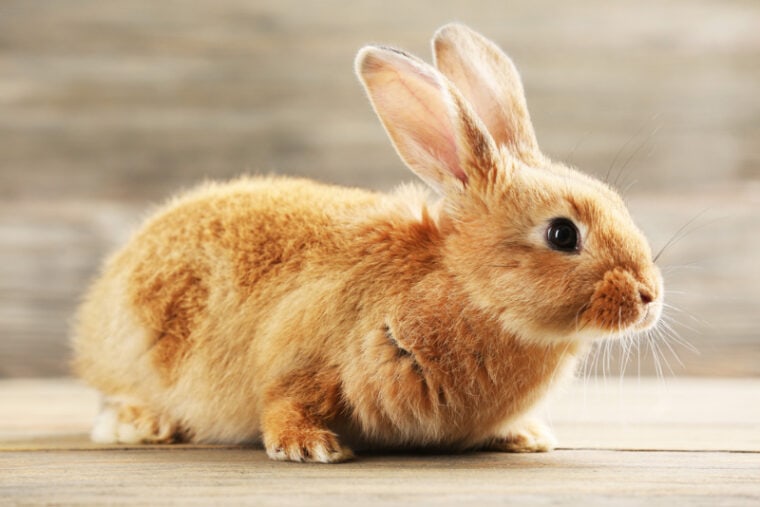
Your bunny has been hopping round usually, however you discover they’re having diarrhea. Is that this diarrhea a priority, or will it cross by itself? You’re most likely additionally questioning why your rabbit has diarrhea.
Let’s discover the variations between diarrhea and smooth cecotropes, the causes of diarrhea in rabbits, and methods to deal with diarrhea in rabbits, each at house and thru your veterinarian. It’s time to speak about rabbit poop!

Rabbit Stool 101
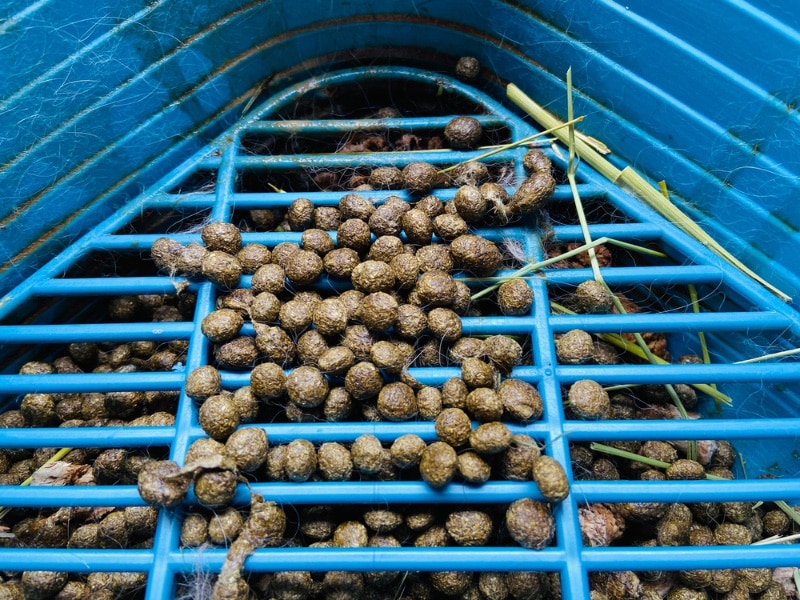
Rabbit stool ought to usually appear like strong, spherical pellets. Diarrhea in rabbits is normally watery and unformed quite than discrete balls. It might be crusted round their rectal space or on their hind legs.
Your rabbit additionally produces cecotropes, items of stool fashioned inside the cecum, a department off the intestines. As gross as this would possibly sound, rabbits eat cecotropes to get additional vitamins. For example, cecotropes are excessive in vitamin B, which rabbits don’t create on their very own.
It’s essential to distinguish between regular stool and cecotropes as a result of the cecotropes is usually a little softer. As well as, there are totally different causes of sentimental common stool and smooth cecotropes.

The 9 Causes Diarrhea in Rabbits & Therapies
1. GI Stasis
Some of the vital well being points plaguing pet rabbits is GI stasis. This situation is just not usually related to diarrhea however will be for some rabbits. With GI stasis, the rabbit’s intestine contractions lower, so meals doesn’t transfer by readily. Due to the decreased motility, the intestine micro organism additionally grow to be unbalanced.
GI stasis is usually painful and might trigger gasoline. Therapy makes use of ache remedy, fluids for the rabbit, and GI motility drugs. Since GI stasis is often related to rabbits not getting sufficient fiber, remedy usually includes supplementing with loads of hay.
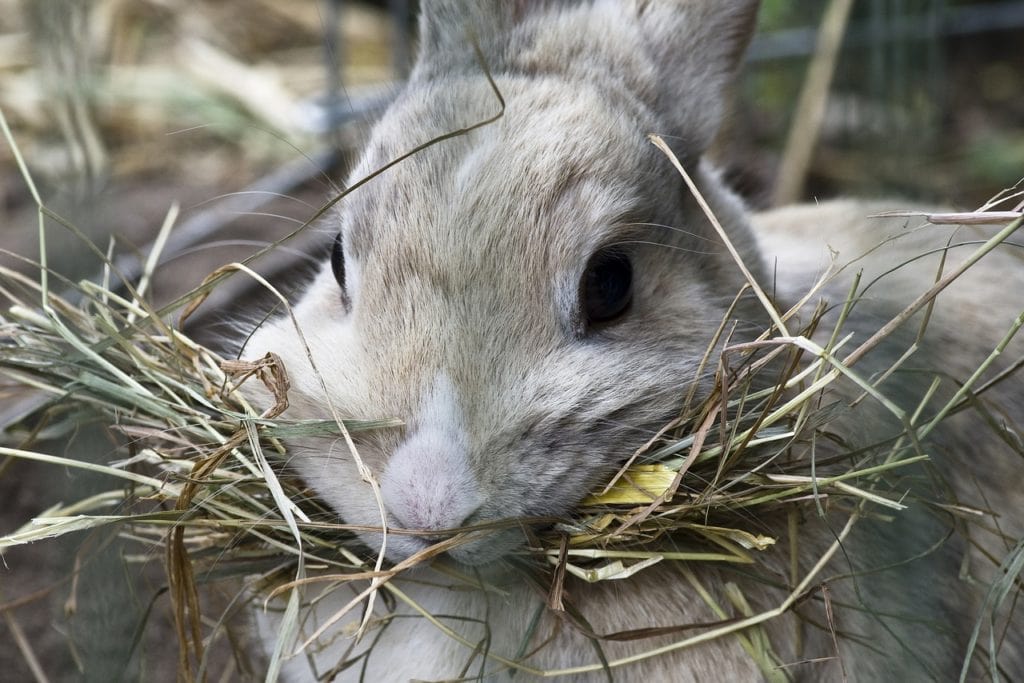
2. Intestinal Parasites
Rabbits are vulnerable to contracting a number of intestinal parasites. These parasites embody:
Coccidia tends to be the commonest intestinal parasite in rabbits. Younger rabbits are particularly in danger. A rabbit with intestinal parasites may not present any indicators however may need diarrhea.
Therapy is dependent upon the kind of parasites. Your veterinarian will diagnose them primarily based upon a bodily examination and fecal examination, and remedy might embody a dewormer or particular antibiotics, equivalent to Albon, for coccidia.
3. Antibiotics
Your veterinarian have to be very cautious when prescribing antibiotics to your bunny. Some antibiotics are very strongly not beneficial in rabbits because of the excessive probability that they are going to disrupt the traditional populations of intestine micro organism, which may result in diarrhea.
Rabbit veterinarians usually don’t advocate sure antibiotics for rabbits, together with:
If antibiotics trigger your rabbit’s diarrhea, they should see a veterinarian skilled with rabbit medication as quickly as potential. Your rabbit will doubtless want supportive care, equivalent to fluids and a important care food regimen.
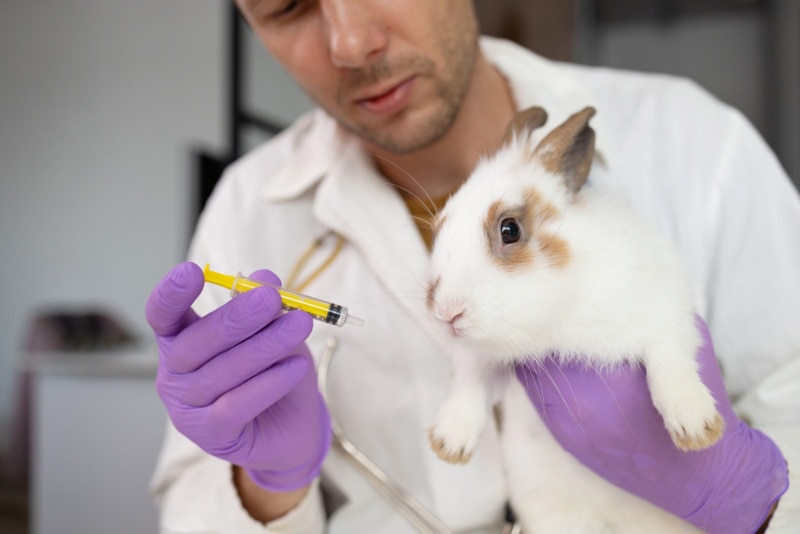
4. Infections
Your rabbit will be affected by viral, bacterial, and fungal infections. A few of these may cause diarrhea.
A virus causes rabbit hemorrhagic illness. Affected rabbits typically die all of the sudden and should have indicators of bleeding. Rabbits that don’t die shortly might have diarrhea and neurological indicators.
Bacterial infections may cause peritonitis, which is often painful and should trigger the affected rabbit to exhibit GI indicators. Sure bacterial infections may cause devastating gastrointestinal indicators in bunnies, equivalent to E. coli, Salmonella, and Clostridium piliforme.
Your veterinarian will decide remedy primarily based on their tentative or confirmed prognosis. Your rabbit may have cultures carried out to find out the reason for the an infection. Therapy might contain supportive care, antibiotics, and ache remedy.
5. Mucoid Enteropathy
Mucoid enteropathy is a situation with mucus accumulation inside the intestines. Sadly, it’s not a well-understood situation. Pathogens, food regimen, and even stress might play a job in it.
There are a couple of remedy choices, however the prognosis is poor for rabbits with mucoid enteropathy:
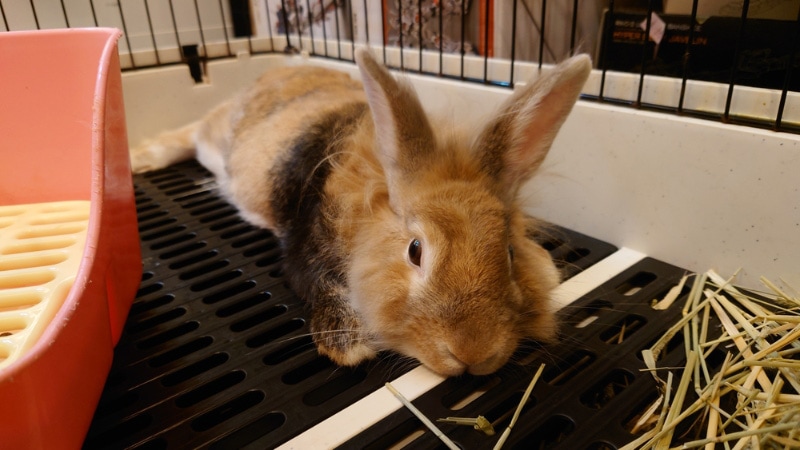
6. Food regimen
Feeding rabbits a food regimen not excessive sufficient in fiber is a fast solution to trigger gastrointestinal upset, diarrhea, and different points like GI stasis. You’ll wish to make sure that they’ve loads of hay and a restricted variety of pellets. Be careful that the recent vegatables and fruits they get aren’t too excessive in moisture or sugar: each may cause intestinal disruptions.
For affected rabbits, you’ll want to extend their hay consumption instantly. Make sure you’re solely utilizing alfalfa hay if directed to by your veterinarian as a result of it’s increased in protein and carbohydrates than your rabbits normally want and might trigger GI points.
7. Toxins
Sadly, there are many doubtlessly poisonous crops and chemical substances which may be round your own home. Some might produce diarrhea in your rabbit. Examples of crops you have to be conscious of are:
If you happen to discover your bunny has gotten right into a doubtlessly poisonous plant or family compound like cleaner or poison, it’s essential to contact your veterinarian immediately. The kind of remedy is dependent upon what your little hopper has gotten into. It might be more durable to deal with your bunny than a canine as a result of bunnies don’t–and might’t–vomit, so there’s no solution to get the poison out of their system.
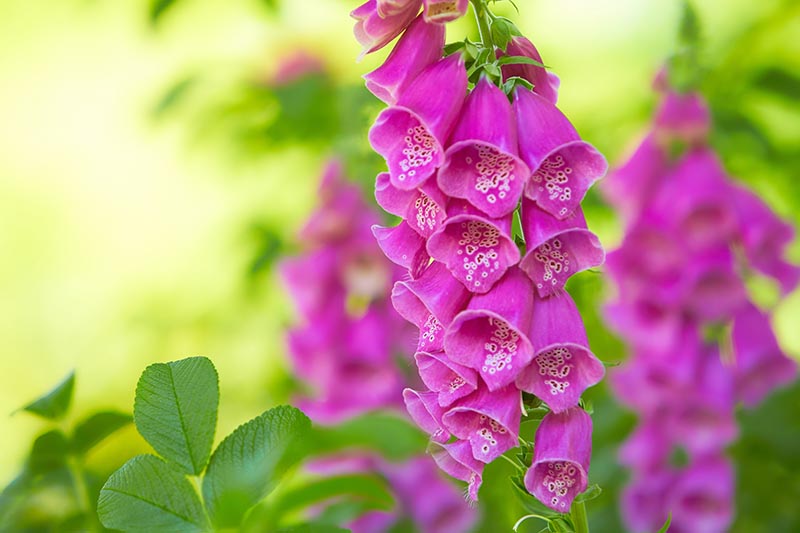
8. Power Illnesses
Some illnesses are linked to GI indicators like diarrhea or GI stasis. Dental illness may cause your rabbit to not eat, setting them up for GI stasis.
Within the case of dental illness, your vet might want to deal with affected enamel. Your veterinarian ought to carry out an intensive bodily examination, together with an oral examination, to verify every part is regular. Some animals want extractions or their enamel trimmed to make it extra comfy for them to eat.
9. Soiled Backside Syndrome
Soiled backside syndrome in rabbits is related to diarrhea or smooth cecotropes. A major explanation for this situation is just not getting sufficient fiber. Rabbits are additionally explicit about their grooming. However when a bunny will get chubby, they might have bother cleansing their again finish or consuming their cecotropes.
Your rabbit would possibly develop soiled backside syndrome if they’ve dental illness, the place it’s painful to eat. With dental illness, they might not eat their cecotropes.
Your veterinarian might want to take an in depth historical past after which carry out an intensive bodily examination to try to pinpoint the trigger. The reason for the soiled backside will take some digging, and remedy will rely in your veterinarian’s prognosis.
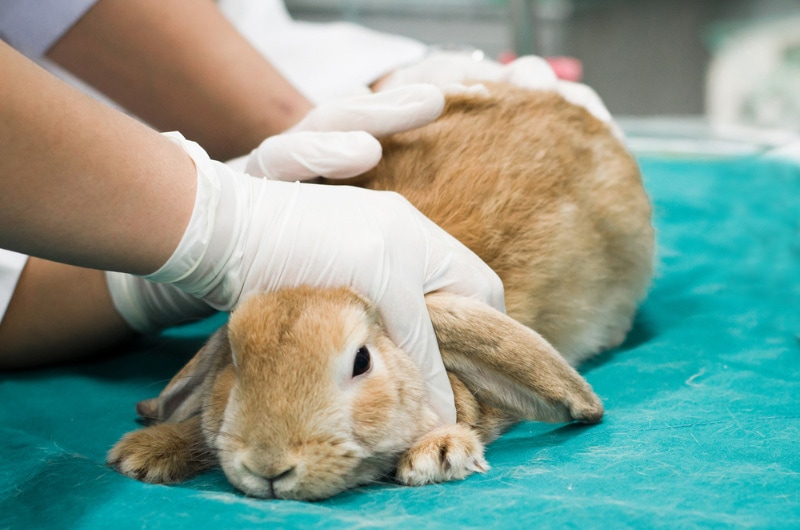

What About Comfortable Cecotropes?
If it’s simply your bunny’s smooth cecotropes, you normally have to assess what your furry good friend is consuming. Some examples of food regimen that will contribute to smooth cecotropes are:
If you happen to can establish one in every of these causes, you’ll be able to typically get rid of it from the food regimen to assist get your rabbit’s intestine well being again on monitor.

Steadily Requested Questions
Can stress trigger diarrhea in rabbits?
Stress can positively trigger diarrhea in rabbits. Sadly, it could take as much as every week for rabbits to develop diarrhea secondary to emphasize, so it may be troublesome to establish the inciting trigger.
Stress may cause diarrhea in rabbits in a couple of other ways. First, adrenaline slows intestine motility, which may result in GI stasis. The cecum also can grow to be much less acidic or extra alkaline if rabbits aren’t consuming their cecotropes. This variation in acidity results in match dysbiosis, or alterations within the intestine microflora.
Will feeding treats to my rabbit trigger diarrhea?
Feeding all kinds of meals to your rabbit can result in diarrhea. Excessive-sugar fruits or different meals with a better carbohydrate quantity can result in “dangerous” micro organism overcrowding the populations of “good” micro organism within the intestine.
If you happen to’re providing a deal with, it ought to be a small quantity (usually talking, lower than 10% of the food regimen). Feeding bigger quantities is making a fast change in your rabbit’s meals and might trigger diarrhea.
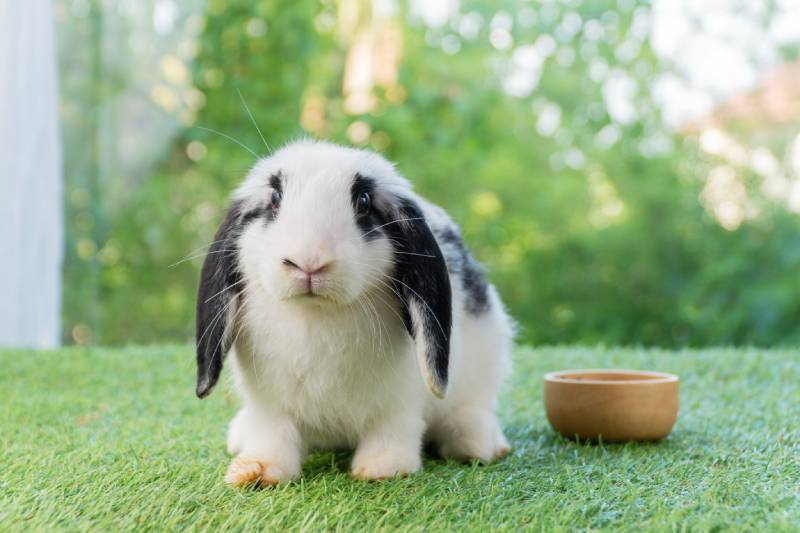

Conclusion
Rabbits are curious creatures, so that you’ll want to look at what they eat fastidiously. If you happen to begin to discover softer stools along with your rabbit, contact your veterinarian for an examination, particularly if they’re younger or previous, making them extra in danger for being immunocompromised. Whereas ready to your appointment, guarantee your rabbit eats an entire and balanced food regimen.
Featured Picture Credit score: Africa Studio, Shutterstock
[ad_2]
Source link




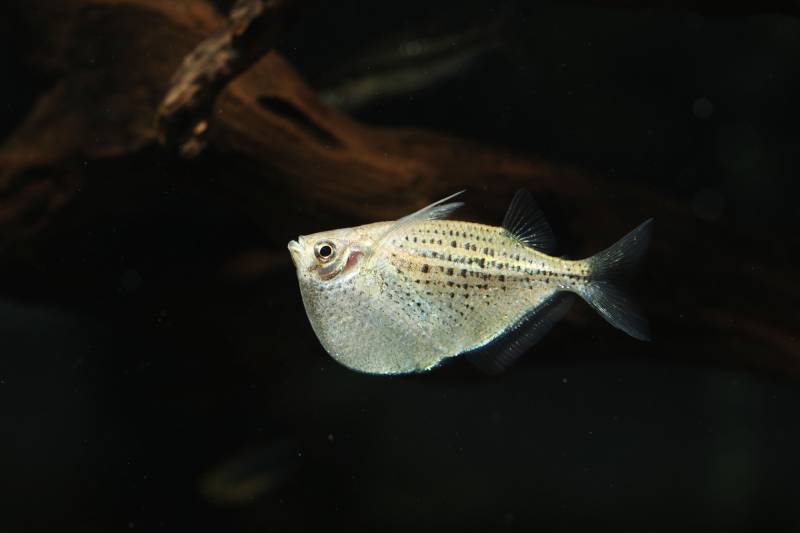
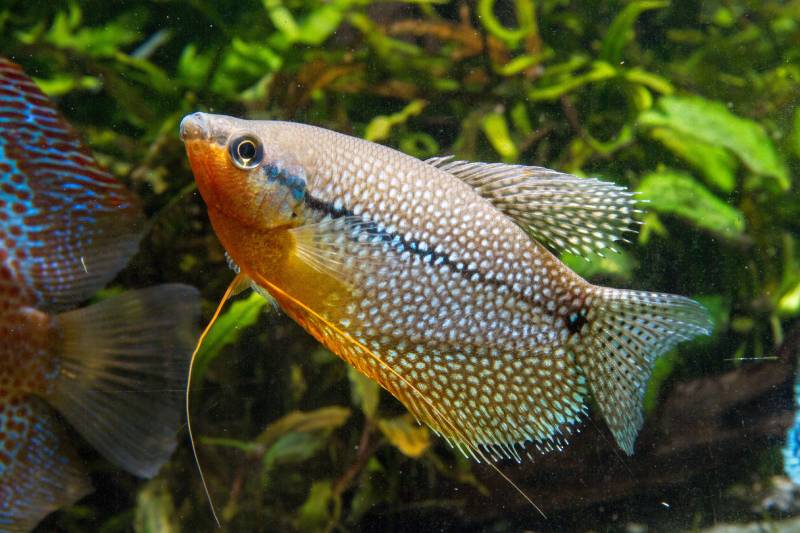
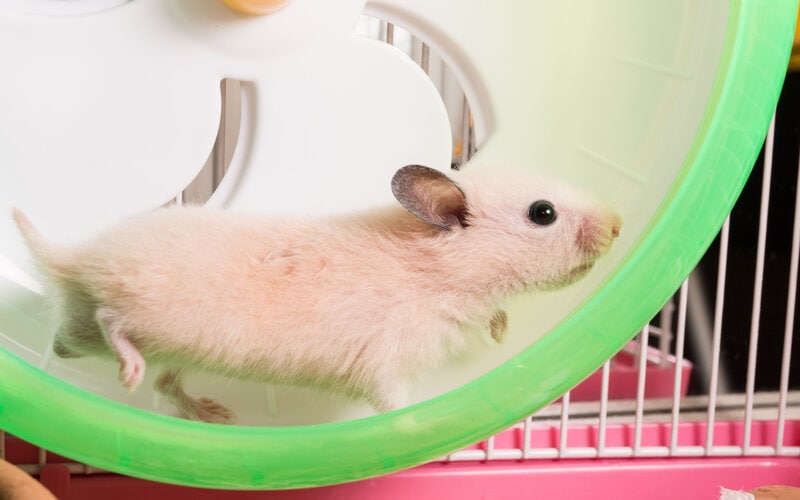
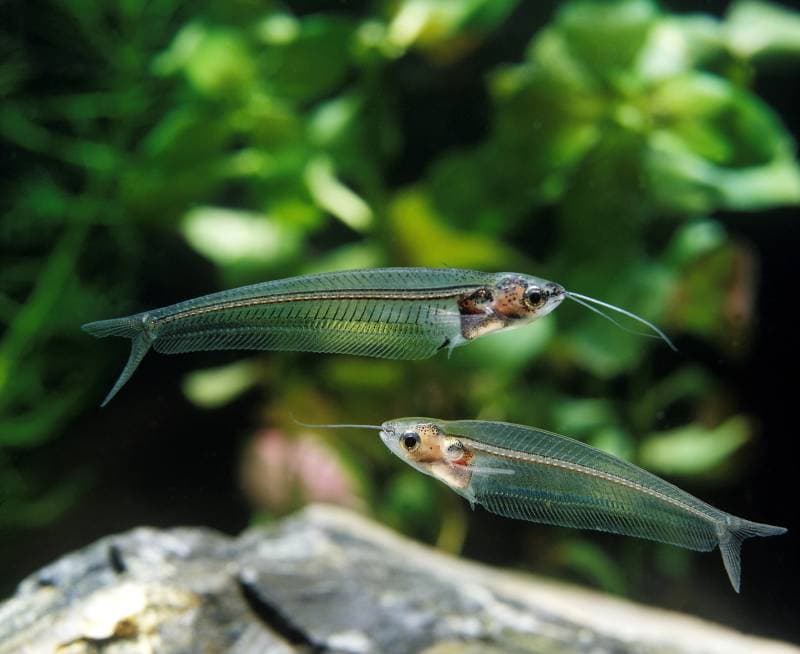
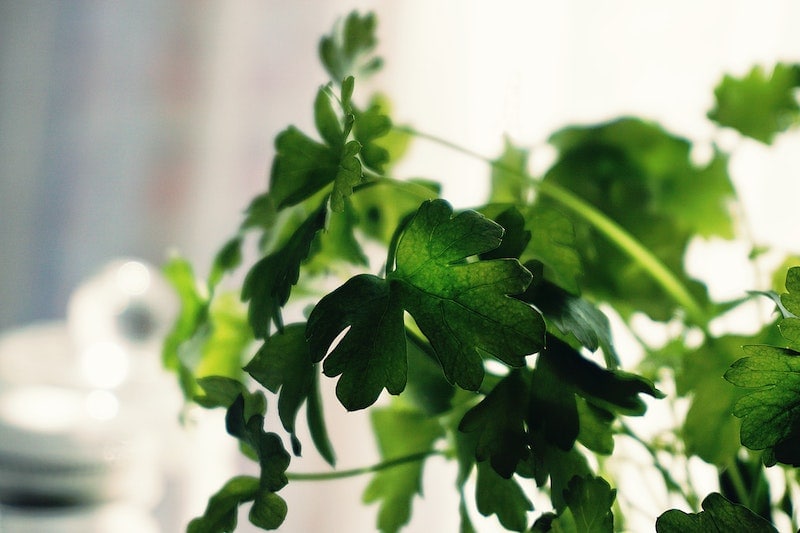
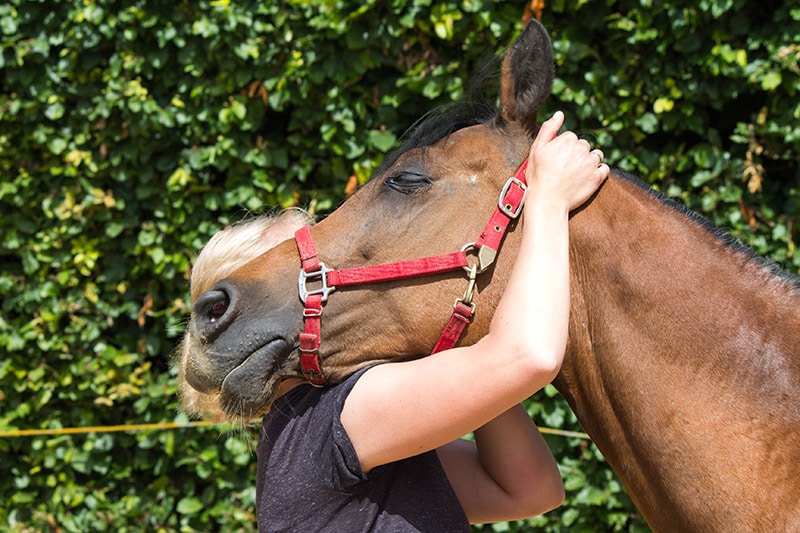









Discussion about this post